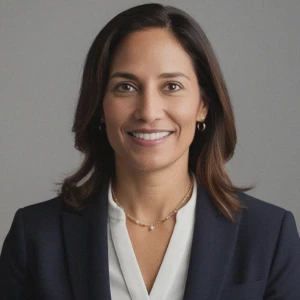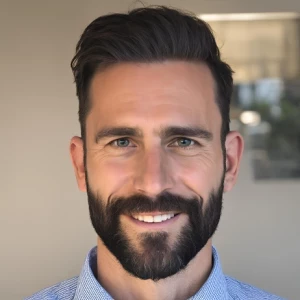I will be interviewing in the fall and would like to start my preparation early on, so I will not get too stressed out once the interviews are coming. What would be a good way to get started and how much time invest should I put into it?
Interview Prep - Where to start?

I can only agree with what PrepLounge has already recommended here, even though I probably won't do coaching personally, as I have already mocked a few interviews with my fellow students and now feel quite confident.
At the stage you're currently at in terms of time, I would also say that it's enough to familiarize yourself with the industry and understand what to expect in an interview. There really is a lot of content online, for example on common questions. That helped me a lot to get started, even if I can't yet say whether it will really be enough to get an offer, as I'm not yet in the application phase.
Hope this helps and happy to connect once you're in your active application phase.

I agree with what's been said already and starting early is definitely a good idea. It'll help you avoid last-minute stress and gives you the time to really deepen your knowledge.
A good time invest would be 2-4 hours per week in the beginning, focusing on reviewing concepts, practicing mental math and studying market trends.
Once the interview season gets close, you should add mock interviews with peers to your prep plan and increase the time invest to at least 5-8 hours per week.
From my experience, coaching can also really help to give your interview performance the final edge. I have seen many candidates that came well-prepared and mock interviews can definitely get you on a solid level, but there are still some tweaks you can add to get you to the 110% that are needed to succeed for the absolute top roles.
I wish you much success and please reach out if you have any questions or need support with your prepartion.

It’s great that you’re thinking ahead about your interview prep! Starting early is a smart strategy because it will help you feel more confident and reduce stress when interview season comes around. Here’s a structured approach to get you started and keep you on track.
First, take some time to familiarize yourself with the format of the interviews you'll be facing. For investment banking, you can expect a mix of technical questions, like those about financial modeling and valuation, as well as behavioral questions where you'll be asked about your experiences, why you want to work in IB, and how you handle challenges. Spend some time researching the specific firms you're interviewing with, especially their culture, as this will help you tailor your answers. In the beginning, aim for about 1-2 hours a week focusing on this research and getting comfortable with the basics.
Once you have an understanding of the interview format, dive into the core technical knowledge required for IB. This includes mastering concepts like discounted cash flow (DCF), comparable company analysis, precedent transactions, and understanding how financial statements work. There are plenty of free resources, like Wall Street Prep or YouTube channels, where you can find guides and tutorials. In parallel, start preparing for behavioral questions—practice telling your story, answering “Why IB?” or “Tell me about a challenge you’ve overcome” in a natural and concise way. Again, dedicate about 1-2 hours a week to this during the first few months, focusing on both technical and behavioral prep.
Around the 3-4 month mark, it’s time to kick up the mock interview practice. Find a peer, mentor, or even an alumni to help you with mock interviews. Not only will this help you get comfortable answering questions on the spot, but it will also give you valuable feedback to improve your performance. At this stage, it’s also a good idea to start tackling technical problems and case studies, like walking through a DCF model or discussing current market trends. Aim to do 2-3 mock interviews per month, along with regular technical practice.
As you get closer to interview season, focus on refining your story. By now, you should have a clear, well-polished answer to “Tell me about yourself.” This should highlight your journey, why you’re passionate about investment banking, and why you’re a great fit for the firm. Additionally, have a few well-prepared stories ready that demonstrate your leadership, teamwork, and problem-solving skills—qualities that are highly valued in IB. Spend 1-2 hours a week during this time fine-tuning these responses.
In the final month before your interviews, simulate real interview conditions. This means doing mock interviews under time pressure, dressing as you would for the real interview, and getting used to the nerves and pacing. You’ll want to feel like the process is second nature by the time the actual interviews roll around. During this final month, aim for 1-2 mock interviews per week.
Throughout the whole process, it’s important to stay up to date with current events and market trends. IB interviews often include questions about recent deals, market conditions, or economic developments. Set aside 15-30 minutes every few days to read financial news, like The Wall Street Journal or Financial Times, to stay informed.
By spreading out your prep over the months leading up to your interviews, you’ll build a strong foundation without overwhelming yourself. The key is consistency—start slow, stay steady, and build your confidence over time. When the interview season arrives, you’ll feel ready and in control, rather than rushed and stressed. Does this plan sound like a good fit for you? If you need any more tips or resources, feel free to reach out!
Hey there,
Good news: You have come to the right place! 💚💙
It definitely makes sense to start your preparation early on, but also: Relax! There is still plenty of time until the interview season in the fall.
To make sure, you are perfectly prepared without any stress, we'd recommend the following:
Start now by getting familiar with the most important financial concepts. Also start reading finance news on a regular basis and stay on track on market trends. Whenever you come across terms you don't know or wouldn't be able to explain to someone else: Look them up. That way you will slowly improve your technical knowledge.
About 2-3 months before the interviews, we recommend to intensify your prep. Know your finance basics by heart, polish your personal fit stories and practice, practice, practice! On PrepLounge, you will find plenty of peers in the same situation, so make sure to connect and schedule mock interviews.
If you really want to make sure you have it all together (and your budget allows it), we'd also recommend working with a coach. We have many experts on the platform who can give you tailored feedback and boost your self-confidence before the final day.
We hope this helps and wish you much success! 🚀








